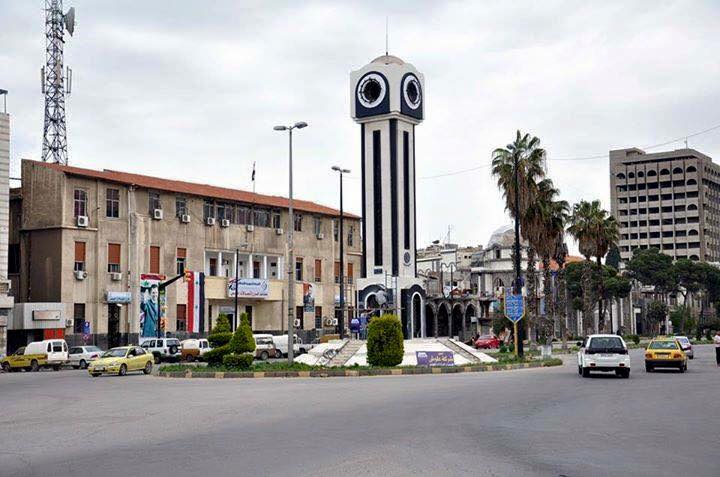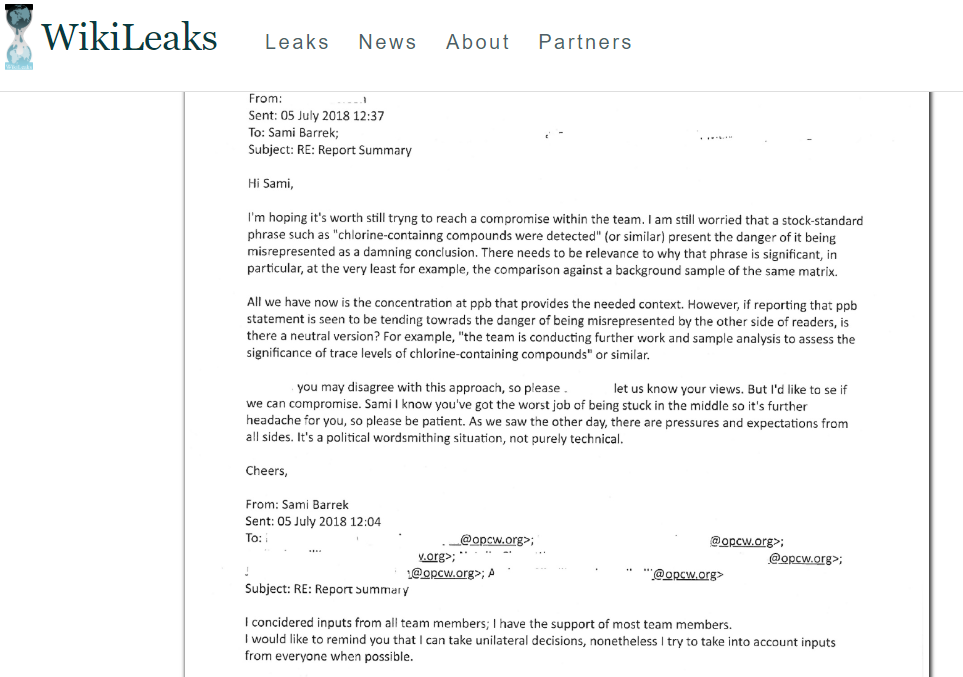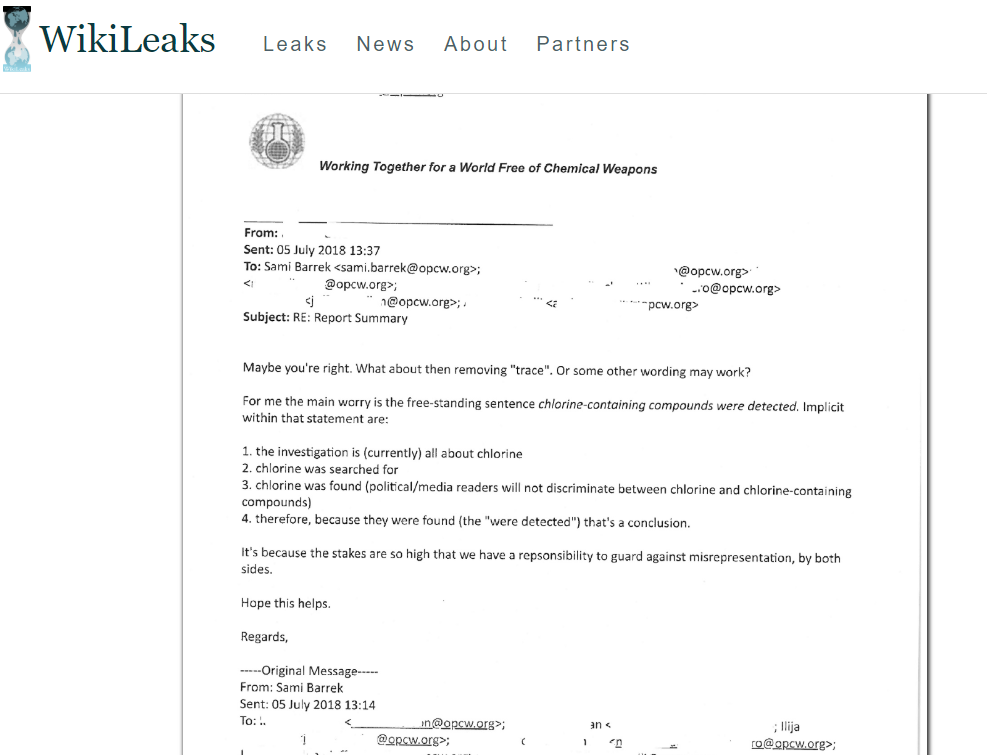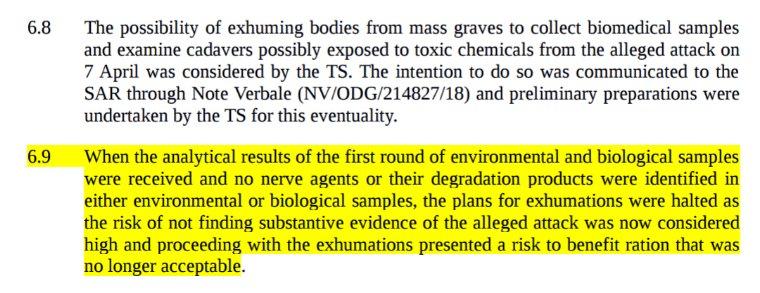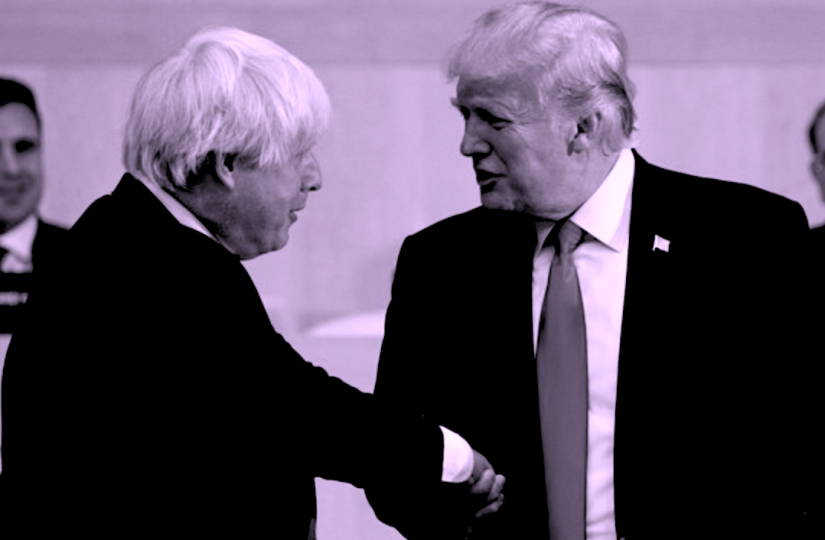The Sino-American hegemonic conflict has several dimensions including political and economic issues. But we cannot overlook the cultural aspect of the conflict, for the cultural factors affect the nature of socio-economic relations as well as the unfolding New Global Order.
This is particularly so, for it is the first time that the Western super power meets the Asian giant on the hegemonic battle ground.
In a way, we are seeing the clash between Western Values and Asian values.
It is true that the sustained interaction and the globalization of values would have narrowed the value gap between the two systems of thoughts.
Nevertheless, the Chinese way of thinking can be different from the American way of thinking. After all, the ways of thinking have been built up for thousands of years.
We are interested in examining the roles played by values in the dynamics of the Sino-American (Foreign Policy “Thucydides Trap”.
This paper has three parts.
First, I will discuss the origin of values and how the values affect human ways of thinking.
Second, I will see how the values affect the choice of a political-economic regime.
Third, I will discuss the impact of values on the formation of the New Global Order.
1. The Values
I argue that values are reflected in a set of human relations. I have selected the following relations: man-God, man-society, man-man, man-universe and man-history
1.1 Man-God
In China and East Asia, Buddhism, Confucianism and Shamanism deal with the man-God relation in a rather rudimentary fashion.
In Buddhism, the notion of Nirvana plays a central role. It is state of beatitude, or eternal happiness. But there is no god who manages the Nirvana.
For Buddhism, human life is itself suffering. To be free from suffering, one has to find four noble truths: truth of suffering (human life), truth of the origin of suffering (attachment to ephemeral things), the truth of the cessation of suffering (will power to be free) and the truth of eight ways.
The eight ways of freeing from suffering are: right vision, right thought, right words, right actions, right living, right efforts, right conscience and right meditation.
Facing the death, man has two choices. One may go to the state of Nirvana for eternal happiness. One may have to come back to the suffering earth in various forms. All depend on Karma (the way one has lived on the earth). What is important is that there is no god who governs the Nirvana. God is unknown, if there is one.
In Confucianism, one relates the “heaven” to the emperor who is regarded as “son of heaven”. Here, the heaven seems to refer to some unknown god.
Now, in Shamanism, every major object on the earth can be god. The sun, the moon, the wind, the mountains, the trees and anything which are considered as being beyond human control can be god. They are not known, however.
In short, in the Asian system of thought, the god is not known, if there is any.
The powerful religion in the West is Christianity. In this religion, God has created man (human) in the image of God. (Genesis 1.26-27) This passage in the Bible has a very important meaning.
Man being created in the image of God, he is sovereign, he is dignified, he is free and he has the right to be himself. Here is the philosophical and theological root of the notion of individual human right.
There is another crucial West-Asia difference in man-God relations. In Asia, it is not sure if there is a god. Even if there is god, no one knows who the god is. That is, the god is not revealed.
Hence, the god has little influence on man. Now, in Christianity, God is identified. God is revealed in two ways: directly through the Bible and indirectly through the nature.
Thus, there is a big difference between Asia and the West as far as the man-God relations are concerned. In the West, there is only one God; so there is only one absolute truth determined by God. Thus, Christianity is a powerful doctrine.
On the other hand, in Asia, there is no unique God. So there is no absolute truth; the truth is relative. Here, we see the philosophical and religious root of pragmatism in Asia.
1.2 Man-Society Relations
The most dominant system of thought in Asia in relation to the man-society relations is Confucianism.
In Confucianism, man is defined in function of his position within a given collective entity of which he is a part. We should remember that Confucianism was formulated by Confucius in order to show the best governance of the king (government).
For Confucius, what counts in society should be the stability and the order in a hierarchical society.
There are basically four hierarchical relations: king-subject, parents-children, husband and wife, elder children-younger children. These relations consist of rights and duties.
The subject must respect and obey the king; the latter must provide stability, security and welfare to the former.
The parents must provide the moral and physical needs and the education of children; the latter should respect, obey and look after the former at their old age.
The husband should be responsible for the welfare of his wife; the latter must obey and serve the former.
The elder children must guide and help the younger children; the latter must respect and follow the guidance of the former.
The Confucian human relationship can be summarized in terms of “Hyo” (孝)and “In” (仁).
“Hyo” means the attitude of a person of inferior social status toward the person of superior social status. It means filial piety, respect and obedience.
“In” means the attitude of a person of superior social status toward a person of inferior social status. It includes magnanimity, generosity, compassion and other forms of paternalistic attitude.
When Asian man meets a person for the first time, he often asks the age of the person just met. This may put uneasy a westerner; it is understandable. The reason for doing it is to determine his “good manner” required, when he meets the person of older age. In the absence of other known criteria, the social status is often determined by the age of the person.
The Confucian notion of man-society relationship has important implication on human rights. The whole human relationship being hierarchically integrated, man is not autonomous and man belongs to a collective entity.
In other words, human relations make sense only in the context of collectivism. Collectivism comes before individualism. It means that individual rights can be less important than the right of the collective entity. It is the opposite in the West.
In Asia, individuals are to serve the collective entity; in the West, the collective entity is to serve the individuals.
In Asia, the collective entity may give to itself the right of deciding the priority of public policies.
In the West, in a true democracy, the individual has the right to select the priority policy such as the individual freedom of speech.
In Asia, the public entity may pick the solution of hunger as the priority right. This is so called “social right” or “collective right”. In this context, the individual human right may be implemented later.
The experience of South Korea is a good example of the sequencing of rights. Under the military dictatorship and the conservative governments, in the name of economic development (social right), the individual right of freedom of speech was cruelly violated. Now, under the liberal government, the situation of individual right is much improved.
I think that a similar sequencing of human rights has taken place in the West. Even in the United State and in many other parts of the world under the domination of the West, the implementation of individual human rights took a long time before its realization.
1.3 Man-man Relations
In the Asian system of thought, there is no real ideology related to man-man relations.
If there is one, it is the Confucian Hyo-In relations As for Buddhism, what counts is the compassion for all living beings including humans. Daoism mentions even less about such relations.
It is in the West that man-man relation is most developed and refined. It is the Commandment of Love ordered by Jesus (Matthew 22. 37-39). The great virtue a man can have is the love of neighbour; the shortest way to salvation is the love of neighbours. This is perhaps the greatest contribution of Christianity to mankind.
The love of neighbours is the source of inspiration for human decency, social justice, the respect for the human right and true democracy.
1.4 Man-Universe Relations
In the West, the man-universe relation is also one of the key concerns of Christianity. The universe is governed by the “good” and the “bad”. Now, the relation good-bad is in eternal conflict and dichotomous.
The universe goes forward by destroying the bad and preserving the good. Thus, in Christianity, the ideology of man-man relation is very strong and dogmatic. It is the duty of man to join the battle for the victory of the good over the bad. In this way, the humanity goes forward toward a better world. In short, man must intervene in the life of the universe.
There is another important side in Christianity. It has something to do with man’s exploitation of the nature. The Bible says that man is authorized by God to look after the nature (Genesis 1.28). In fact, man has been so faithful to this part of the Bible that the nature is suffering from over exploitation by man.
In Asia, the heart of Buddhism is the love for the preservation of all kinds of living beings. Thus, in Asia, the preservation of the nature is highly valued.
In Asia, Daoism says that the universe is governed by “Chi”(energy) (氣)There is the positive chi (Yang) (陽)and the negative chi (Eum)(陰). The positive chi and the negative chi do not fight; they co-exist in harmony. Therefore, man does not need to intervene in the life of the universe; the universe is doing fine without human intervention. Here is the Asian doctrine of non-intervention in the life of the universe.
To sum up, in the West, man is encouraged to intervene in the fight for the victory of the good over the bad on the one hand and, on the other, he is allowed to dominate the nature.
In contrast, in Asia, non-intervention of man in the affairs of the universe is valued; the preservation of the nature is encouraged.
1.5 Man-History Relations
In the West, there are two views on history. One is the deterministic view and the other, non-deterministic view. The deterministic view is represented by the Christian doctrine, the Hegelian doctrine and the Marxist doctrine. The non-deterministic view is represented by the Toynbee doctrine.
The Christian doctrine says that there is an end of history of mankind, as there was a beginning. The history ends when the whole world will be evangelized.
The Hegelian doctrine pretends that the history should march toward the world of greater freedom.
Now according to the Marxist doctrine, history moves by stages towards Communist society.
In the Toynbee doctrine, history of a society evolves through the challenge-response-change sequence with no fixed direction.
At each critical period in history, enlightened intellectuals challenge the established structure of the society; the conservative elite groups meet the challenge; the enlightened and the conservatives fight and may come up with a consensus for a change; the change occurs without any pre-fixed direction.
It must be pointed out that, in each of these doctrines, man intervenes in the evolution process of history. In other words, in the West, man is the master of the history.
In Asia, Daoism tells us that the history is governed by “Chi”. There is the positive chi (Yang)and there is negative chi (Eum). These two opposite “chis” coexist in harmony. There is no need for man to intervene. The history will go its own way.
One of the keywords of Daoism is “wu wei” meaning “act by not acting”. What these keywords are trying to tell us is that man should let the universe and the history to go their own ways.
2. Impact of Values on the Choice of the Political-Economic Regime
What has impacted the most the Chinese political and economic regime is surely the pragmatism which has allowed China to combine socialism with Confucianism.
The government provides a stable and secure living environment and decent welfare for the people. In return, the people respect the authority of the government and obey government decisions.
The head of the state is the father of the people who are the members of the big family called the nation. The government-people relation here is the Hyo-In relation.
Buddhism has a role to play here. Under the influence of Buddhism, the people do not ask much and contend with little. This could contribute to the stability of the society
Furthermore, pragmatism allows China to adopt a hybrid economic system combining planned economy with a “free market system” without major difficulties.
It must be noted that, in China, the choice of the political or economic system does not seem to be an ideological choice but rather a pragmatic selection. This suggests that China is ideologically neutral in the choice of a regime.
Capitalism or socialism is simply a pragmatic tool needed for the realization of political or economic objectives.
Pragmatism has the advantage of assuring the flexibility of the regime, but it has also the inconvenience of coordinating various parts which make up the regime.
The American political-economic regime is rigid and dogmatic. It is inspired by Christianity.
Christianity has given the socio-economic regime of liberal democracy and the capitalism of free market system. As for the origin of capitalism and free market in Christianity, we find, in several books in the Old Testament (Genesis, Leviticus, Deuteronomy, Psalms, Proverbs and others), such basic notions of capitalism and free market as property right, investment, profit, wage, interest rate and free competition. Moreover, in the book of Amos, we find how the unjust competition can be punished
Christianity makes it clear that each individual is sovereign, autonomous and free, which requires a regime in which individuals are the master of society.
Now, in order that the people can be the master of society, the regime should be for the people, by the people and of the people. This is how Abraham Lincoln saw liberal democracy.
In order that the people behave as the master of the regime, they must have economic means to exercise their rights and duties. But, the survival of such a democracy in the U.S. is becoming increasingly difficult.
Unfortunately, family income distribution in the U.S. is one of worst in the developed countries. The Gini coefficient is as high as 45.0 in 2019. In the same year, the Gini in China was 46.5.
But, we must remember that, in 2019, the per capita GDP (nominal) is $65,000 in the U.S. as against $10,000 in China. Thus, in terms of per capita GDP, the U.S. is 6.5 times richer than China. But, the inequality of income distribution is as bad as in China.
The Gini coefficient is a routine procedure used by economists to measure income inequality. It varies from zero to 100. The higher the Gini, the higher the inequality of the income distribution in favour of the rich. A lower Gini points to greater equality in income distribution i.e. in favour of the poor.
The United States is no longer the liberal democracy as defined by Lincoln. The American people are no longer the master of the country. Christianity once inspired the free, liberal and just democracy. But, now, it is no more.
The regime based on the love of neighbours is now replaced by the love of money. The love of God is replaced by the love of money.
3. Impact of Values on the New Global Order
The basic issue we have to deal with here is the question of knowing what kind of global order will come out of the Sino-U.S. Thucydides Trap.
Will it be a mono-polar order dominated by the U.S. or China?
Will it be a duo-polar order dominated both by the U.S. and China? Will it be a multi-polar order dominated by several major powers?
The United States had, once, a noble vision of a global order in which all countries can enjoy peace, prosperity and security.
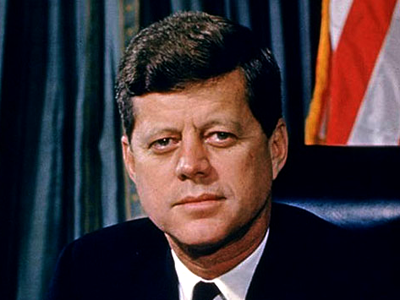 The famous speech of John F. Kennedy made in 1963 at the American University of Washington, we could read such vision:
The famous speech of John F. Kennedy made in 1963 at the American University of Washington, we could read such vision:
“What kind of peace I mean? What kind of peace we seek? Not a Pax Americana enforced on the world by American weapons of war. Not the peace of the grave or the security of slave. I am talking about genuine peace, the kind of peace that makes life on earth worth living, the kind of peace that enables men and nations grow and to build hope and build a better life for their children-not only peace for Americans but peace for all men and women-not merely peace in our time but peace for all time” (John F. Kennedy, 10 June 1963)
Kennedy gave us the glimpse of the kind of world mankind would have hoped for; it was a noble dream.
But, this dream was ultimately shattered.
 Moreover, in 1997, a group of 25 neoconservative intellectuals signed a document called “The Project for the New American Century-PNAC’ which indelibly destroyed Kennedy’s vision.
Moreover, in 1997, a group of 25 neoconservative intellectuals signed a document called “The Project for the New American Century-PNAC’ which indelibly destroyed Kennedy’s vision.
Key members of the PNAC included Donald Rumsfeld and Dick Cheney who later inspired George W. Bush to conduct the illegal Iraq war (2003). John Bolton, one of key figures of the war-loving Washington oligarchy was a part of the PNAC; he was the one who tried to impose the Libyan model for North Korea denuclearization. (see image below)
The strategy of the PNAC consisted in the outright destruction of countries which were not obedient to Washington’ demands. the PNAC was also a strategy of “regime change”.
The strategy of regime change consists of the following:
- First, diplomacy is used to persuade the target country to change their political regime, i.e into a pro-U.S. proxy government.
- Second, if diplomacy does not work, various means are taken to divide or fragment the country in favour of U.S. interests.
- Third, if all these tactics fail, brutal military force is used.

Many countries have been the targets of US regime change. Many countries in Latin America have been the targets. In more recent years, Libya, Iraq, Syria and Iran have been included in the long list of regime change targets.
North Korea has been the target for the last 70 years, but it is maintaining its “Juche” regime.
The Unites States was, once, considered as the place where the Commandment of Love was flourishing. But, now, it is not easy to find what might be described as “living Christianity” in the United States.
How long will the Pax Americana last? No doubt, the U.S. will remain one of the most powerful countries. But the possibility of the United States remaining as the sole global power in the World is becoming increasingly doubtful. There are several reasons for this:
First, I wonder how long the U.S. can finance Pax Americana. It is true that, in nominal terms, the US GDP in 2018 was $ 22 trillion as against $14 trillion in China. But in terms of PPP (purchasing power parity) the Chinese GDP in 2018 was $27 trillion. In other words the Chinese economy has 24% more purchasing power than the U.S. economy.
The U.S. is financing about 24% of UN, the World Bank, the International Monetary Fund, NATO and many other international organizations. Washington has to finance the operation of 130 US military bases in the world
The defence budget of the U.S. in 2019 is $716 billion as against $177 billion in China. This means that the U.S. spends 4.0 times more money on defence than China, while its GDP has 24% less purchasing power compared to the Chinese GDP.
How long can Washington support such a heavy financial burden?
There is another problem. Given the worsening income distribution in favour of the rich (and against the middle class and the poor), the demand for goods and services in the domestic market might shrink. This might provoke decades- long deflation as has happened in Japan.
The experience of various FTAs (Free Trade Agreements) shows that international trade alone cannot guarantee the sustained growth of the US economy. The domestic market should also develop. To do that, we need more equal income distribution and a lower Gini coefficient.
Second, the political influence of Washington among developing countries is weakening, because these countries depend less on Washington’s aid.
Third, the harsh conditions of the structural adjustment programe (SAP) imposed by IMF on debtor countries is another reason for the declining influence of Washington.
Fourth, the power of the dollar which has been the loyal servant of Pax Americana is falling because of the increasing use of non-dollar currencies for central banks’ reserves and international trade. Until not long ago, the US dollars accounted for 90 % of central banks’ reserves, but now they represent only 60%.
Besides, increasing number of countries including China, Russia and several other countries are using, for international trade, non-dollar currencies. This trend is likely to continue.
Fifth, the American ordinary people do no longer want war. Since 1945, rare have been days without wars somewhere in the world. Americans don’t want war.
Americans have been paying a lot for the war. The sacrifice of human lives, the underdevelopment of welfare, especially, the medical care which is one of the most expensive systems in the world, social insecurity due to crimes and rifle violence, worsening state of social infrastructure, increasing burden of education of the poor are some of the costs of never-ending wars imposed on the American people.
For all these reasons, it will become more and more difficult for Washington to continue to dominate the world (alone).
Now, as for China, its international relations has been guided by the principles of pragmatism, the philosophy of non-interference and the preference for decision making based on consensus rather than the unilateral imposition of ideas.
Let us see how this Chinese way of thinking affects its vision in the area of international relations.
First, in accordance with the philosophy of non-interference, China is not interested to change the regime of foreign countries. China has no evangelical ideology to conquer the world under one value system. Moreover, being pragmatic, China might consider that the cost of regime change is too exorbitant.
Second, the pragmatism has led China to respect and apply the rules and norms set out by the WTO system, not because it likes them, but because they don’t hamper China’s role in the international trade system.
Third, China wants the security and the prosperity of other countries, because they are useful for China’s security and prosperity. Here again, we see China’s pragmatism.
The project One Belt-One Road, so called the BRI, is perhaps the model of Pax Sinica (China Peace). In this model, 68 countries collaborate for the common security and prosperity; it is not motivated by any dogmatic ideology; it is motivated for common objective to live better.
The primary objective of the BRI is the development of social and industrial infrastructure. One of the main reasons for the un-development and the underdevelopment of the economies of so many countries in Africa and Asia has been precisely the lack of infrastructural facilities.
Furthermore, the development of infrastructure will facilitate the integration of the whole Eurasian economic block accounting for 40 % of global GDP and 60% of the world population.
In all probabilities, China could become the most powerful country in the world, which will surely impact the destiny of mankind.
But, China will not impose Pax Sinica; it will not try to change the political regimes of other countries.
It is most likely that China will seek for peaceful cooperation with the United States geared towards global security and prosperity.
The kind of global order which China will foster could be a “duo-polar order” in which Washington and Beijing could potentially lead the world toward a “better place to live” for all humanity. This is what I wish with all my heart.
*
Note to readers: please click the share buttons above or below. Forward this article to your email lists. Crosspost on your blog site, internet forums. etc.
Professor Joseph H.Chung is professor of economics and co-director of the East Asia Observatory (OAE) of the Study Center for Integration and Globalization (CEIM) of the University of Quebec in Montreal (UQAM). He is Research Fellow of the Centre for Research on Globalization (CRG).









